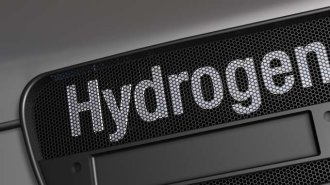
Hydrogen fuel cell companies are becoming more popular. As people start to realize that an alternative fuel will eventually become necessary, the idea of using hydrogen technology to fill the gap looks promising. While the technology is not widespread at the moment, there are hydrogen fuel cell manufacturers that are working on making this a more mainstream idea.
Car Manufacturers
Honda started experimenting with hydrogen powered cars some time ago, and Toyota and GM soon followed suit. In 1999 the Honda FCX prototype was released for testing. This vehicle runs on hydrogen power as opposed to gasoline. Toyota has the FCHV, and GM worked on the HydroGen3. These hydrogen vehicles are not widely available now, but they manufacturers promise they will be soon.
National Hydrogen Association
One of the forerunners in the hydrogen race is the National Hydrogen Association. They work with over 100 members, including small businesses, individuals, universities, and large corporations to help the progress of hydrogen power. Working with corporations such as Shell, GM, GE and Chevron, the association furthers the public awareness of what hydrogen can do, offers investors funding opportunities and helps corporations utilize hydrogen in positive ways.
Quantum Technologies
One of the biggest challenges with utilizing hydrogen power for vehicles is the storage aspect. Quantum Technologies provides storage solutions for cars, generators and other areas where hydrogen can be used. They provide fuel cells for different car makers, fueling stations and companies who want to use more alternative fuel for power.
When compared to fuels such as batteries and gasoline, hydrogen is a great alternative, as it can provide more benefits than other power supplies. There are limitations to batteries that hydrogen doesn't have, despite them both being an environmentally friendly option. Unlike gasoline and diesel, which result in dangerous and dirty emissions when burned, the only byproduct of hydrogen fuel cells is water vapor.
The Process
Electricity is created from hydrogen by combining it with oxygen within the cell with the use of two electrodes. The anode and the cathode work with an electrolyte and metal plates to create and store electricity. A direct current voltage is produced to power the motor. In addition to the electricity, this process also produces water and heat as waste products.
Uses
There are a range of appliances that hydrogen power can be used for in addition to hydrogen fuel cell cars, enabling it to compete with the standard power supplies for everything, from laptops to power plants.
Maintenance
The upkeep required for a hydrogen powered car will involve knowing where and how to obtain the hydrogen to power it. Hydrogen filling stations tend to be few and far between and, if you obtain large amounts, you need to take into account the potential storage costs as well as the cost of the fuel itself. The durability of the fuel cells will also be a consideration, as this will give you an idea of the level of maintenance necessary. High quality fuel cells are designed to last for 150,000 miles.
Cost
The cost involved in owning and operating hydrogen fuel cell cars will vary according to the type of electric cars used, the manufacturer and the type of hydrogen technology used. Although many of the large vehicle manufacturers have introduced hydrogen-powered cars into their range, the technology is still in its infancy. In view of this situation, the cost of hydrogen fuel cell cars exceeds that of a comparable gasoline or diesel powered car. For now, the cost of a car designed to be hydrogen powered can be as much as $100,000. However, as technology develops, the cost is gradually decreasing. Hydrogen fuel cell conversion kits can be used to make a car run on this technology. These kits can also be expensive, costing as much as $4,000 to convert the engine.